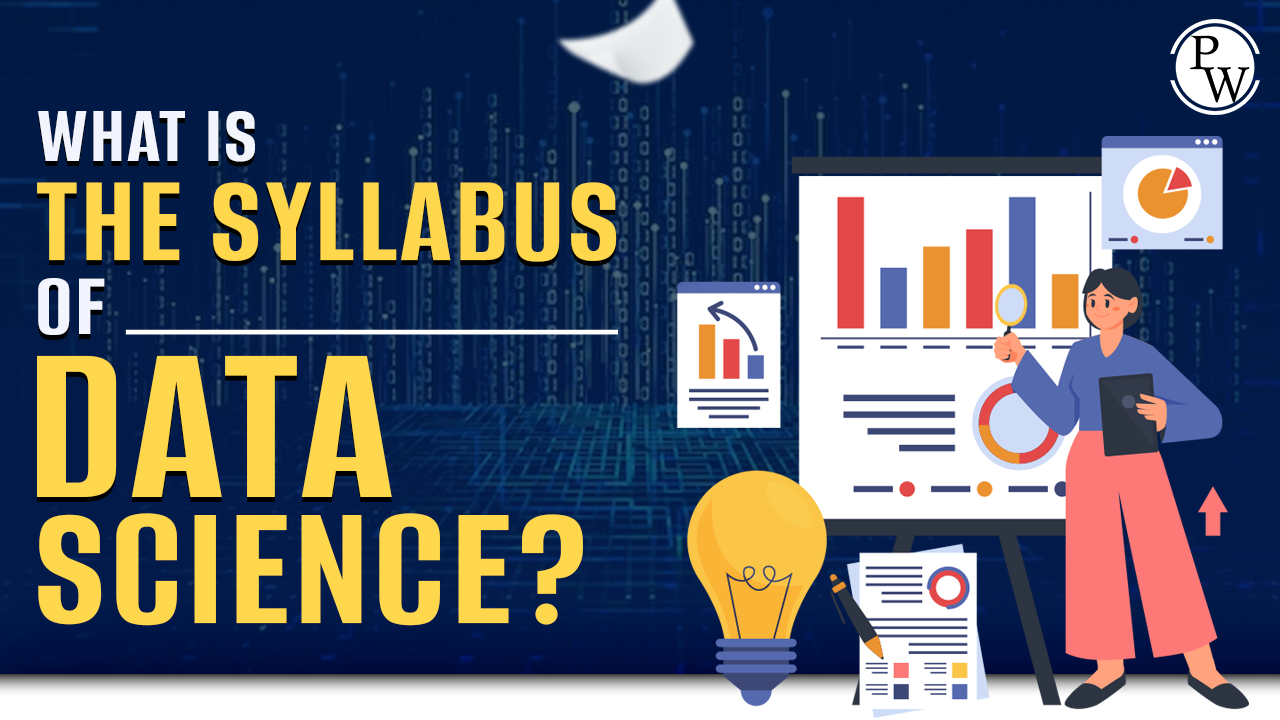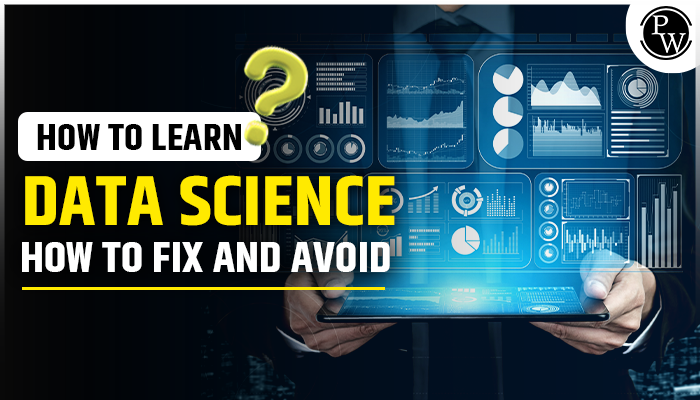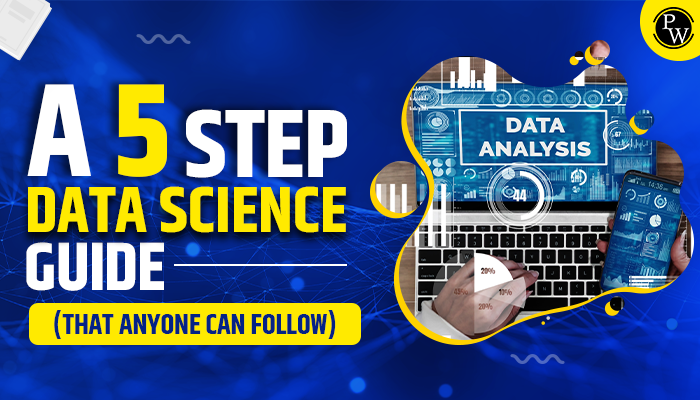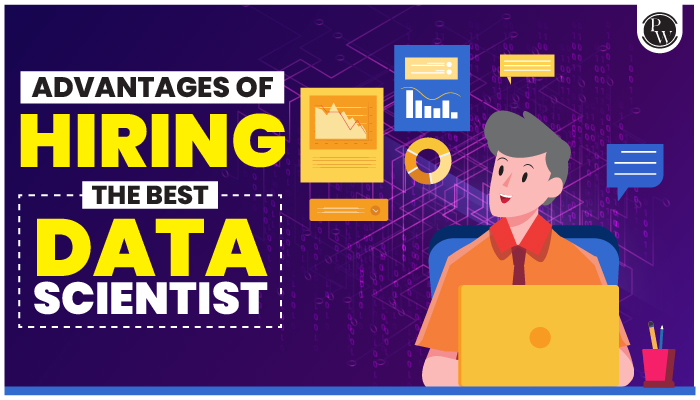Data Science for beginners is often considered one of the most promising career choices in the 21st century. It’s vital for businesses in how they function and provide services. Data science uses tools, methods, and algorithms to discover valuable information from different types of data.
Many institutions worldwide are striving to meet the rising demand for data scientists. This article will help you understand the core data science syllabus before you choose a data science course.
If you want to learn Data Science from the basics then the best course you can consider is Data Science and Machine Learning Essentials.
What is Data Science?
Data Science is a collection of facts that can take various forms, including numbers, statements, and binary code (0s and 1s). Over the past two decades, the volume of data has grown exponentially and is expected to continue expanding. With the advent of technology, data from diverse sources has become increasingly complex.
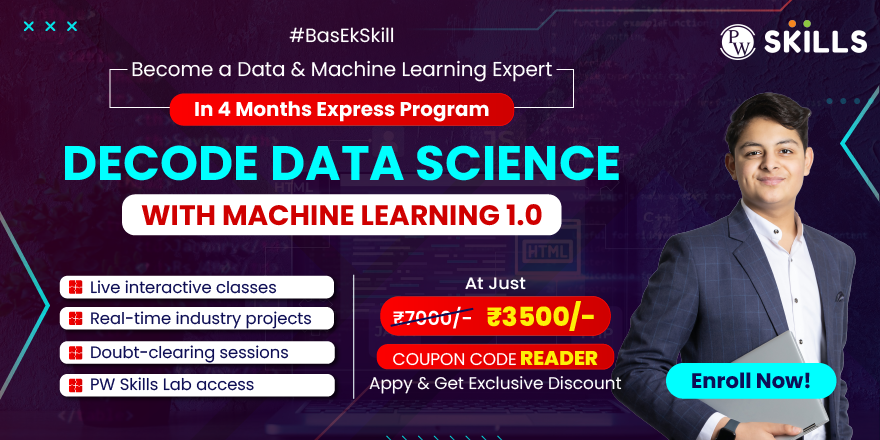
This abundance of data necessitates the need for data science—a field dedicated to extracting insights and valuable information from this vast reservoir of data. Data science for beginners empowers decision-makers to make informed choices based on data-driven analysis.
What Are Data Science Programs?
Data science programs are designed to equip students with the knowledge and skills needed to work with various types of data and statistical information. These programs cover a wide range of topics, including statistics, programming, algorithms, and data analysis techniques. Graduates of data science programs are well-prepared for diverse roles in the field and are highly sought after by employers.
Applications of Data Science for Beginners
Data science for beginners has practical applications in various domains, including:
- Chatbots: Chatbots are automated programs that can respond to user queries. They are used in industries such as hospitality, banking, and retail. Examples include Siri and Alexa.
- Self-driving Cars: Data science plays a crucial role in the development of self-driving cars, which have the potential to revolutionize the automotive industry.
- Image Tagging: Data science enables automatic tagging of individuals in photos on platforms like Facebook, enhancing user experience.
Who is Eligible For a Data Science Course?
To pursue a master’s degree in data science, you need a bachelor’s degree in relevant fields like mathematics, computer science, computer applications, or their equivalents. If you’re new to data science, a background in science can be beneficial. Those with quantitative finance or business management backgrounds can also consider a data science career. If you come from a non-technical background, prior knowledge of basic analytics tools like Excel, SQL, or Tableau can give you a strong start on your data science journey. Besides, anyone who has an interest in learning the subject can take the course.
Topics of Data Science For Beginners
Big Data:
This topic focuses on teaching students how to work with massive amounts of unstructured data, such as clicks, videos, messages, and more, and the tools and techniques to extract valuable insights from it. Understanding big data is crucial for data scientists, as their role involves uncovering hidden patterns within vast datasets.
Business Intelligence:
Business intelligence is about presenting data in visual formats to assist organizations in making informed decisions. Data science for beginners courses often include this topic, as it complements a data scientist’s skill set. It’s essential for a data scientist to not only possess data analysis skills but also the ability to convey their findings through visual presentations, making them more effective in a business context.
Machine Learning:
Machine learning is a core component of data science for beginners, albeit one of the more challenging areas to master due to its broad scope. It encompasses various subjects, and within data science, it involves using vectors and matrices to work with datasets efficiently. Understanding machine learning, including neural networks, is crucial for data scientists.
Problem-Solving:
Data science for beginners is all about using data to solve real-world business problems. Students are taught how to analyze raw data to make informed decisions. For example, they might examine the impact of variations in large data sets and develop strategies to address these variations. This aspect of the data science course often includes real-world examples and case studies.
Programming Languages:
Dealing with large volumes of data necessitates using programming languages to retrieve, evaluate, and manipulate data efficiently. Popular programming languages in data science for beginners include Python, R, and Saas. These languages help data scientists work with data effectively and precisely.
Statistics:
A strong basic knowledge in statistics is essential for data scientists. Probability and linear algebra are often part of data science programs, as many machine learning methods rely on conditional probability. Even if you don’t delve deep into linear algebra, having mathematical skills is crucial to grasp concepts like neural networks. Statistical knowledge is vital for working with machine learning algorithms.
Also check: Top 12 Data Science Certifications That You Can Consider
What is The Syllabus of Data Science For Beginners?
Whether you’re taking an online course, a classroom program, or a full-time university degree in Data Science, the syllabus is quite similar everywhere. The specific projects may vary, but the core concepts remain consistent across Data Science courses.
Data Science Syllabus For A Beginner
Here’s what you’ll find in the Data Science syllabus:
- Introduction to Data Science: Starting with the basics, you’ll learn about different types of datasets and the standard techniques used to explore data.
- Programming Language: Essential programming languages for data science for beginners, like Python and R. You’ll get an overview of their syntax, basic commands, and how to use them for data analysis.
- Query Language: You’ll dive into the basics of Structured Query Language (SQL) to query data from relational databases. You’ll also explore other query languages like NoSQL and MongoDB.
- Statistical Foundations for Data Science: This part covers fundamental statistical concepts and probability, which are crucial for data analysis projects.
- Mathematics: You’ll get a grasp of math and statistics fundamentals, including topics like linear algebra, calculus, and probability.
- Exploratory Data Analysis: This section delves into data exploration and analysis. You’ll learn different techniques for cleaning and preprocessing data, along with methods for identifying patterns and correlations in datasets.
- Data Mining: Here, you’ll be introduced to data mining principles and various techniques for extracting patterns from large datasets. The focus is on developing data analysis strategies, clustering, and reducing dimensionality.
- Machine Learning Techniques & AI: You’ll gain an understanding of Artificial Intelligence (AI), machine learning (ML), and deep learning (DL) and how to apply them to solve real-world problems.
- Data Modeling, Selection, and Evaluation: This part teaches you how to choose the right data model and assess its performance. You’ll explore metrics like accuracy, precision, and recall, as well as techniques for selecting the most suitable model for a given problem.
- Data Visualization and Reporting: You’ll learn various techniques and tools for effectively visualizing data. The syllabus covers how to visualize data using R packages, Tableau, and Power BI.
- Business Intelligence Tools: This section focuses on different methods for collecting and managing data to gain meaningful insights. Topics include setting up a data warehouse, integrating multiple data sources, and creating reports with drill-down capabilities.
- Big Data & Real-Time Analytics: The final part explores tools and techniques for processing, storing, and analyzing large amounts of data in real-time. This includes technologies like Hadoop, Spark, and NoSQL databases, as well as distributed computing frameworks and streaming analytics platforms.
GATE EXAM COACHING
Data Science Syllabus Covered in PW Full Stack Data science Pro
Introduction
- Get acquainted with the course and the data industry.
- Explore the course dashboard.
- Learn about the support system and lab introduction.
Module 1: Python Basics
- Understand the fundamentals of Python.
- Explore Python objects and their use.
- Learn about data types and type conversion.
- Dive into conditions, loops, and namespaces.
Module 2: String Objects
- Study string objects in Python.
Module 3: List Object
- Explore the list object in Python.
Module 4: Functions
- Understand how to create and use functions.
Module 5: Object-Oriented Programming (Oops)
- Dive into object-oriented programming concepts.
Module 6: Files
- Learn about handling files in Python.
Module 7: Exception Handling
- Study error handling and exceptions in Python.
Module 8: Memory Management
- Explore Python’s memory management.
Module 9: Database & API
- Learn about working with databases and APIs.
Module 10: Flask
- Dive into Flask, a Python web framework.
Module 11: Pandas
- Study the Pandas library for data manipulation.
Module 12: Numpy
- Explore the Numpy library for numerical operations.
Module 13: Visualization
- Learn about data visualization techniques.
Module 1: Statistics Basic
- Get introduced to basic statistics terms.
- Learn about types of statistics, data types, and levels of measurement.
- Understand measures of central tendency and dispersion.
- Study random variables and sets.
Module 2: Statistics Advance
- Advance your knowledge in statistics.
Machine Learning Module 1: Introduction to ML
- Learn the basics of Machine Learning.
Module 2: Feature Engineering
- Understand feature engineering techniques.
Module 3: Feature Selection
- Study the art of feature selection.
Module 4: Exploratory Data Analysis
- Dive into exploring and analyzing data.
Module 5: Machine Learning
- Learn the fundamentals of Machine Learning.
Module 6: Regression
- Study regression analysis.
Module 7: Logistics Regression
- Explore logistic regression.
Module 8: Decision Tree
- Understand decision tree algorithms.
Module 9: Support Vector Machines
- Learn about support vector machines.
Module 10: Naïve Bayes
- Study Naïve Bayes classification.
Module 11: Ensemble Techniques And Its Types
- Dive into ensemble learning and its types.
Module 12: Boosting
- Understand boosting in Machine Learning.
Module 13: KNN
- Study the k-nearest neighbors algorithm.
Module 14: Dimensionality Reduction
- Learn about reducing dimensionality in data.
Module 15: Clustering
- Explore data clustering techniques.
Module 16: Anomaly Detection
- Understand anomaly detection methods.
Module 17: Time Series
- Study time series analysis.
Module 18: Machine Learning Projects
- Apply your Machine Learning skills to real-world projects.
Additional Topics
- Get insights into various data-related topics like AI, ML, DL, DS, and more.
- Learn about supervised and unsupervised learning, training, and testing data, performance metrics, and the concept of bias vs. variance.
This syllabus covers everything from the basics of Python to advanced Machine Learning, providing a comprehensive foundation for data science for beginners and analytics.
Comparison of Various Data Science Programs
| Program | Duration | Core Subjects |
| IIT Data Science Program | MTech or BTech | Data Handling, Privacy, ML, Python, Stats |
| BSc Data Science Program | Bachelors | Intro to Data Science, Stats, Machine Learning, Cloud Computing |
| B.Tech. Data Science Program | Bachelors | Math, Programming, AI/ML, Data Management |
| MSc Data Science Program | Masters | Stats, Math, Python, Deep Learning, AI |
Data Science Books for Beginners
Here are some great Data Science books:
- Python Data Science Handbook by Jake VanderPlas
- Practical Statistics for Data Scientists by Peter Bruce, Andrew Bruce, and Peter Gedeck
- Introducing Data Science by Davy Cielen, Anro DB Meysman, and Mohamed Ali
- Data Science from Scratch by Joel Grus
- R for Data Science by Hadley Wickham and Garrett Grolemund
- Think Stats by Allen B Downey
- Introduction to Machine Learning with Python by Andreas C Muller and Sarah Guido
- Data Science Job: How to Become a Data Scientist by Przemek Chojecki
- Hands-on Machine Learning with Scikit-Learn and TensorFlow by Aurelien Geron
Conclusion
Data Science is a dynamic and promising field that shapes the way businesses operate. With the growing demand for data scientists, understanding the core concepts of data science for beginners is essential.
If you’re aspiring to join this exciting field, you need a strong foundation in Python, R, and various data science topics. The Physics Wallah Data Science Course provides the knowledge and skills you need to kickstart your data science career. Don’t miss out on this opportunity!
FAQs
Can I pursue a career in data science without a technical background?
Yes, you can start a data science career even if you don't have a technical background. Basic knowledge of tools like Excel, SQL, or Tableau can be a great starting point.
What is the average salary of a data scientist?
Data scientist salaries vary, but on average, they can range from ₹ 3.6 Lakhs to ₹ 25.0 Lakhs per year, depending on experience and location.
Do I need a master's degree to start my career as a data scientist?
While a master's degree can be beneficial, it's not always necessary. Many data scientists enter the field with a bachelor's degree and gain skills through courses and practical experience.
What programming language is best for data science?
Python is the most popular programming language for Data science for beginners, but R is also commonly used. Learning both can be advantageous.
Are there any free resources to learn data science for beginners?
Yes, there are numerous free online courses, tutorials, and resources available to learn data science for beginners, including platforms like Coursera, edX, and Khan Academy. However, if you are thinking of making this your career, go for paid courses for deeper knowledge.

